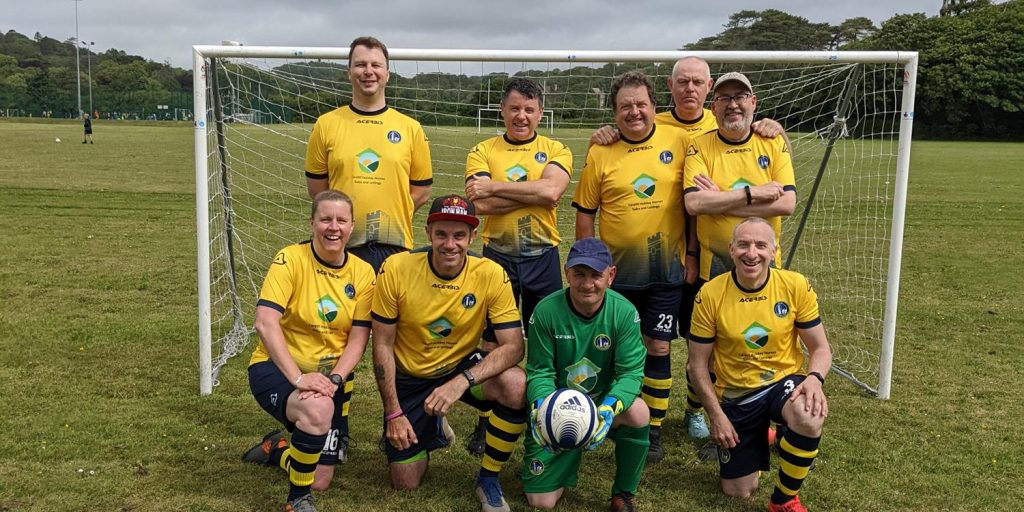Research suggests that men who can’t speak openly about their emotions may be less able to recognise symptoms of mental health problems

Cardiff Walking Football Club gives players a chance for a kickabout as well as an opportunity to talk about their problems.
Men who can’t speak openly about their emotions may be less able to recognise symptoms of mental health issues, according to leading charity Mental Health Foundation.
Having received mental health training from the GMB Union, Cardiff Walking Football Club founding member Chris Davey, 51, can spot when a teammate isn’t feeling himself.
“It’s the ‘I’m okay…but’ that’s when they’ll open up to you and there’s always someone in the group that has dealt with a similar problem to talk to,” he said.
One of the problems that players find hard to talk about is cancer, whether a personal battle or a family member. But the walking football club, based in Whitchurch, is there to support its members.
A team mate has a wife with terminal cancer and another found a lump on his neck, the group is there for them and provides moral support, Davey said.

The most common form of cancer in men
The subject of prostate cancer is somewhat new territory for Cardiff Walking FC. The walking footballer said the subject would only come up in conversation if a member had seen an advert on television or if an ex-professional footballer had recently died from it.
According to a specialist nurse at Prostate Cymru, Gayner Newton, one in three men are susceptible to prostate cancer, and it is the most common form of cancer in men according to Prostate Cancer UK. Keeping active cannot prevent the likelihood of prostate cancer but in terms of a man’s mental well-being it’s crucial, the specialist said.
Too many men “will bury their heads in the sand and leave it too late so if we do find cancer it’s at a much later developed stage and less likely to be treated,” she said. “I have to stress this at the golf and rugby clubs, especially to the ‘It won’t happen to me’ crowds.”
“I have to stress this at the golf and rugby clubs, especially to the ‘It won’t happen to me’ crowds.”
Newton along with Prostate Cymru have urged the Senedd and GPs to start calling in men over 50 for PSA (prostate-specific antigen) testing. The specialist said: “It’s the only test we have for prostate cancer.”
